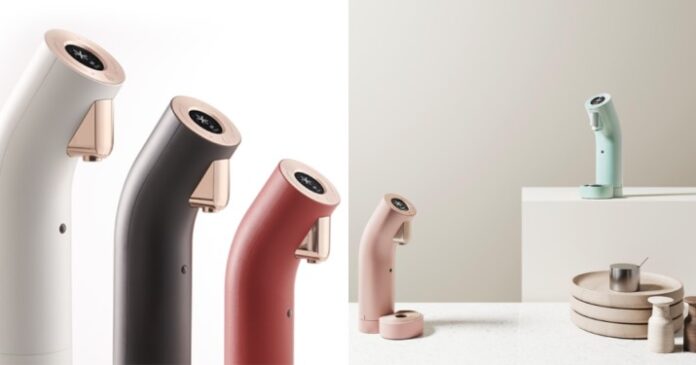Access to clean and safe drinking water is a fundamental human right, yet many people around the world, including in Malaysia, face challenges related to water quality. In recent years, water dispensers equipped with advanced filtration systems have become increasingly popular as a solution to ensure safe drinking water. This article explores the importance of water quality, the types of filtration systems commonly found in water dispensers in Malaysia, and how these systems contribute to better health and well-being.
The Importance of Water Quality
Water quality directly impacts health, sanitation, and overall quality of life. Contaminated water can lead to a range of health problems, including gastrointestinal diseases, reproductive issues, and developmental problems in children. In Malaysia, although the government has made significant strides in improving water quality, challenges still exist. Pollutants from agricultural runoff, industrial discharge, and aging infrastructure can compromise water safety.
Health Risks Associated with Poor Water Quality
- Pathogens: Bacteria, viruses, and parasites can contaminate water sources, leading to diseases such as cholera, dysentery, and typhoid fever. These illnesses pose serious health risks, especially for vulnerable populations.
- Chemical Contaminants: Heavy metals like lead and mercury, as well as chemicals such as pesticides and industrial pollutants, can leach into water supplies. Long-term exposure to these substances can result in serious health issues.
- Sediments and Particulates: Water containing high levels of sediment can lead to gastrointestinal issues and can also affect the taste and appearance of water.
Given these concerns, it is essential for Malaysians to ensure the water they consume is clean and safe. This is where water dispensers with filtration systems play a crucial role.
Types of Filtration Systems in Water Dispensers
Water dispensers in Malaysia often come with various filtration technologies designed to address different contaminants and improve water quality. Here are some common types of filtration systems found in these dispensers:
1. Activated Carbon Filters
Activated carbon filters are one of the most widely used filtration methods. They work by adsorbing impurities and chemicals from water. These filters are effective in removing chlorine, volatile organic compounds (VOCs), and certain heavy metals, which can enhance the taste and smell of water.
Advantages:
- Improves taste and odor
- Reduces harmful chemicals
Limitations:
- Does not remove all types of contaminants, such as microorganisms or dissolved minerals.
2. Reverse Osmosis (RO) Systems
Reverse osmosis is a more advanced filtration method that forces water through a semi-permeable membrane. This process removes a wide range of contaminants, including bacteria, viruses, salts, and heavy metals. RO systems are particularly beneficial for areas where water quality is compromised.
Advantages:
- Highly effective at removing a broad spectrum of contaminants
- Produces clean, pure water
Limitations:
- Requires regular maintenance and replacement of filters
- Can waste some water during the filtration process.
3. Ultraviolet (UV) Purification
UV purification systems use ultraviolet light to kill bacteria and viruses in water. This method is highly effective in disinfection and is often used in conjunction with other filtration systems.
Advantages:
- Effective against microorganisms
- Does not alter the taste or chemical composition of water
Limitations:
- Does not remove chemical contaminants or sediments
- Requires electricity to operate.
4. Ceramic Filters
Ceramic filters use porous ceramic material to remove bacteria and sediments from water. They are often used in rural areas where access to advanced filtration systems may be limited.
Advantages:
- Cost-effective and simple to use
- Can be cleaned and reused multiple times
Limitations:
- Slower filtration rates
- Not effective against chemical contaminants.
5. Multi-Stage Filtration Systems
Many modern water dispensers combine multiple filtration methods to provide comprehensive water purification. These multi-stage systems often incorporate activated carbon, RO, UV, and other technologies to ensure high-quality water.
Advantages:
- Addresses a wide range of contaminants
- Provides thorough purification for safe drinking water
Limitations:
- Higher initial cost
- Requires regular maintenance.
Choosing the Right Water Dispenser
When selecting a water dispenser in Malaysia, it is important to consider several factors to ensure that the filtration system meets your needs:
1. Water Quality Assessment
Before purchasing a water dispenser, assess the quality of your local water supply. You can obtain water quality reports from local authorities or conduct your own testing. Understanding the specific contaminants present will help you choose a dispenser with the appropriate filtration system.
2. Filtration Needs
Consider what types of contaminants you are most concerned about. If microbial contamination is a primary concern, a dispenser with UV purification may be beneficial. If you’re worried about chemical pollutants, opt for a system with activated carbon or reverse osmosis.
3. Maintenance Requirements
Different filtration systems require varying levels of maintenance. Ensure you are aware of the upkeep needed for the dispenser you choose, including filter replacement schedules and cleaning procedures.
4. Cost Considerations
Evaluate the initial purchase price of the water dispenser, as well as ongoing maintenance and filter replacement costs. While some systems may be more expensive upfront, they may save you money in the long run by providing better water quality and requiring fewer replacements.
The Role of Water Dispensers in Promoting Health
Water dispensers equipped with effective filtration systems play a vital role in promoting health and well-being. By ensuring access to clean drinking water, these systems help reduce the risk of waterborne diseases and other health issues associated with poor water quality. Moreover, having a convenient source of purified water encourages people to stay hydrated, which is essential for overall health.
Conclusion
In Malaysia, where water quality can vary significantly, understanding the importance of effective filtration systems in water dispensers is crucial. With the right information, consumers can make informed choices to ensure they and their families have access to safe drinking water. By investing in a quality water dispenser Malaysia with a suitable filtration system, Malaysians can enjoy the peace of mind that comes with drinking clean, healthy water, ultimately leading to better health outcomes and improved quality of life.
































